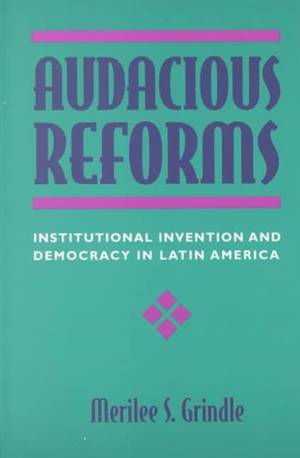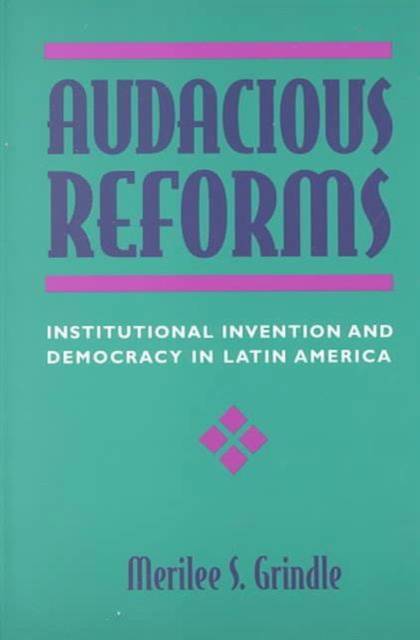
- Retrait gratuit dans votre magasin Club
- 7.000.000 titres dans notre catalogue
- Payer en toute sécurité
- Toujours un magasin près de chez vous
- Retrait gratuit dans votre magasin Club
- 7.000.000 titres dans notre catalogue
- Payer en toute sécurité
- Toujours un magasin près de chez vous
Audacious Reforms
Institutional Invention and Democracy in Latin America
Merilee S GrindleDescription
Audacious Reforms examines the creation of new political institutions in three Latin American countries: direct elections for governors and mayors in Venezuela, radical municipalization in Bolivia, and direct election of the mayor of Buenos Aires in Argentina. Diverging from the usual incremental processes of political change, these cases marked a significant departure from traditional centralized governments. Such "audacious reforms," explains Merilee S. Grindle, reinvent the ways in which public problems are manifested and resolved, the ways in which political actors calculate the costs and benefits of their activities, and the ways in which social groups relate to the political process.
Grindle considers three central questions: Why would rational politicians choose to give up power? What accounts for the selection of some institutions rather than others? And how does the introduction of new institutions alter the nature of political actions? The case studies of Venezuela, Bolivia, and Argentina demonstrate that institutional invention must be understood from theoretical perspectives that stretch beyond immediate concerns about electoral gains and political support building. Broader theoretical perspectives on the definition of nation and state, the nature of political contests, the legitimacy of political systems, and the role of elites all must be considered. While past conflicts are not erased by reforms, in the new order there is often greater potential for more responsible, accountable, and democratic government.
Spécifications
Parties prenantes
- Auteur(s) :
- Editeur:
Contenu
- Nombre de pages :
- 288
- Langue:
- Anglais
Caractéristiques
- EAN:
- 9780801864216
- Date de parution :
- 20-09-00
- Format:
- Livre broché
- Format numérique:
- Trade paperback (VS)
- Dimensions :
- 151 mm x 227 mm
- Poids :
- 408 g







